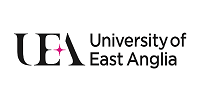- Services
- Solutions
- Technologies
- Resources
- About
-
- +44 (0)203 743 8014
×


Sharing a transformation journey with a university that has a clear goal is always thrilling and rewarding.
The University of East Anglia worked hard to shape up and define its vision for 2030. The team was determined to offer their students the best facilities and a top-class learning experience. It became clear that without information sharing, streamlining internal processes and building partnerships, the university wouldn't be able to satisfy the new demands.
While assessing the internal IT strategy, UEA discovered that many outdated business processes had to be automated and digitised. A strategic integration platform was required in order to:
Create a decoupled architecture where components work independently without direct communication,
Enable high re-use of integration components to speed up subsequent projects,
Enable agility and speed of delivery to demonstrate the results and value fast,
Provide a solid and secure framework for integrations,
Provide a scalable platform.

Universities must meet growing demands for innovative digital learning experiences.
Two integration technologies were shortlisted as transformation enablers - MuleSoft and Microsoft Azure. The IT team defined a use case that both technologies could be tested against. Infomentum's resident MuleSoft experts were invited to build a Proof of Concept (PoC) on MuleSoft's Anypoint Platform.
Let's take a look at the PoC and its success criteria. The PoC was based on the data exchange between internally used systems - the student record system and the identity management system.
Our MuleSoft experts used this opportunity to demonstrate the MuleSoft integration platform's capabilities:
How to create reusable APIs from the existing legacy interfaces;
How to deliver a secure and efficient mechanism for exchanging data between two systems;
How to provide a unified management interface for integrations that enables proactive monitoring and reporting.
Both PoCs were judged based on the following success criteria:
The effort to maintain connections between systems;
Ease of use for non-tech team members to support and maintain the connections;
Ability to re-use the created assets;
Ability to provide flat-file data format transfer between the systems;
The trial cost.
Our Tester Workshop is a perfect solution for organisations that have shortlisted MuleSoft as one of their transformation enablers. Let your team access the platform in 1 day.
MuleSoft won the competition with flying colours! Furthermore, the effective collaboration between the two teams, UEA and Infomentum, demonstrated how well we could work together in the future. Infomentum received excellent feedback and praise for its support during the project. Embedding the university's specialists within our IT team enabled UEA to assess the AnyPoint platform, apply the API-led connectivity principles and learn from our MuleSoft experts.
What's next? Empowered by the results of the PoC, the University of East Anglia is confident that an IPaaS solution such as MuleSoft will be a key enabler of its digital transformation. UEA is planning to proceed with implementing its integration program while closely working with key partner Infomentum to support and accelerate its delivery.
We are passionate and share the joy of igniting ideas to fuel business visions. We are confident and are not afraid to boldly go where we’ve never been. We are also very friendly and approachable people who love to solve problems. Give our curious intelligent learners a challenge and we will make it work.
[fa icon="phone"]+44 (0)203 743 8014
[fa icon="phone"]+44 (0)203 875 5669 (Support)
[fa icon="envelope"]info@infomentum.co.uk
[fa icon="map-marker"]4th Floor
68 King William Street
London, EC4N 7HR, UK